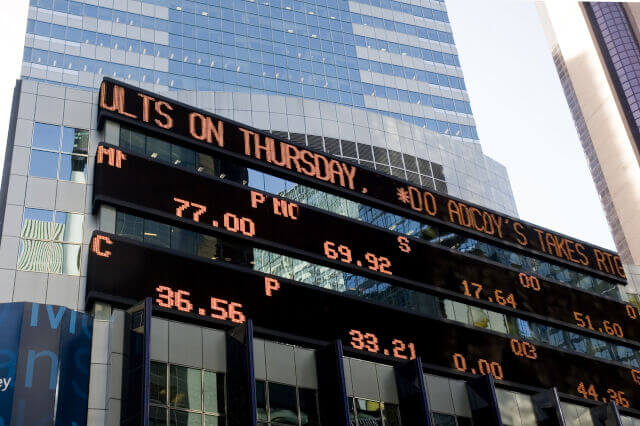Venture capital in the Netherlands: down rounds and anti-dilution provisions
The March 2023 collapse of the Silicon Valley Bank (SVB) sent shockwaves across the global tech industry. Now more than ever the big transitions that we face in energy, healthcare, food, agri and deeptech need funding. Our Van Doorne venture capital (VC) team provides legal support for the funding of these innovative companies. With our blog-series, we hope to provide guidance on venture financings in the Netherlands which will support innovation. We do so by discussing the various terms and conditions that are typically found in term sheets agreed upon by VC investors with companies attracting capital.
The majority of the terminology used and the terms and conditions agreed upon in VC transactions originate from the United States (US) market. The US VC market is, in terms of funding, by far the largest VC market worldwide and therefore more mature and standardized than the European VC ecosystem. The increasing number of successful innovative companies in the Netherlands, the Netherlands’ ability to attract world-class talent and serve as one of Europe’s main technology hubs for innovative companies, have made the Netherlands an attractive destination for US VC investors.
In these blogs, we will dive into the terms agreed upon in equity funding rounds in the Netherlands and specifically focus on the differences between the US and the Netherlands. We will be covering a range of topics, from the basics of term sheets to other more common terms agreed upon in VC financings, including liquidation preferences, anti-dilution protection, leaver provisions and drag and tag-along rights. Today we will discuss down rounds and the common anti-dilution mechanisms.
What happens in a down round?
As a result of the continuous growth ambition of venture-backed companies, funding is often divided into separate successive funding rounds, usually referred to as Pre-Seed round, Seed round, Series A, Series B and so on. In accordance with this pattern of growth, the expectation is also that successive funding rounds are executed at progressively higher prices to reflect the increasing valuation of the company. For the past few years, this has also been the case for the majority of venture-backed companies, but the current reality shows that the valuation of a company will be subject to variables such as failure to meet benchmarks, the emergence of competition and of course economic uncertainty, which could cause the valuation to be lower than it was in the past. In the situation where additional money is required, the company may be “forced” to put its shares on sale and new investors will have the opportunity to participate at a lower price than the price paid in earlier financing rounds. Such investment round is referred to as a down round and will result in the fact that the dilution of the ownership percentage of the shareholders in the company is much larger than what it would have been in case the same or a higher price would be paid for the newly issued shares. The price-based anti-dilution protection is used to compensate preferred shareholders in case of a down round.
Types of anti-dilution protection
There are two types of anti-dilution protection: full-ratchet and weighted-average. If parties agree upon full-ratchet anti-dilution protection, the shareholders are compensated in such way that on average, they will have paid the same price per share as the new investors will pay for their shares in the down round. This means that the price per share of the earlier round(s) is effectively reduced to the price as part of the new issuance. The weighted-average anti-dilution protection is to be considered a slightly less high-impact variation of protection, in which, in addition to the price at which the new shares were issued, the number of new shares to be issued in the new funding round in relation to the already outstanding shares is also taken into account. The two types on which the weighted-average calculation is based can either be broad-based or narrow-based. When calculating the narrow-based weighted average only the outstanding and newly issued preferred shares are used to calculate the average that will be used to determine the compensation, whereas the broad-based weighted-average calculation takes into account all current outstanding shares, including any outstanding rights to shares that would have been issued upon execution of such rights (e.g. options, warrants or convertible loans).
Anti-dilution protection for investors in the US, Dutch and UK VC market
An important difference between the US market and the Dutch and UK market is that in the US market this price adjustment is accomplished by the adjustment of the conversion ratio of the preferred shares, as a result of which the preferred shares may be converted into a larger number of ordinary shares. In the Dutch and UK market this mechanism may also be used, however, in the past few years we have mainly seen that the adjustment is accomplished through the issuance of additional shares. The use of an additional issuance will generally be more flexible than the use of the conversion ratio and for instance provides the flexibility to agree that the anti-dilution protection may also be invoked in multiple subsequent rounds, whereas conversion of preferred shares to common shares can only be done once. Since the nominal value of shares in the Netherlands is usually very low, there should also not be an issue with paying up the shares but how this exactly plays out will be part of the negotiations between parties.
Although the narrow-based and full-ratchet provisions provide better protection to the investors (of the last round) than the broad-based weighted-average which was significantly more common in both the US, UK and Dutch market in the past few years, the downside thereof is that later investors will take into account the fact that such protection has been agreed in an earlier round, and will probably also demand similar protection in their round. Nevertheless, we see that times are changing in this respect and narrow-based and full-ratchet provisions are becoming more common.
The return of the Pay-to-Play
Another change in deal terms that we are anticipating is the return of the Pay-to-Play provisions. In short this entails that when shareholders don’t participate in a future (down)round, they lose the rights attached to their preferred shares, usually by way of a mandatory conversion of their preferred shares into common shares. Companies will want to include these provisions to ensure committed investors and improve the chances on funding when things go south. A disadvantage of Pay-to-Play could be the fact that it gives shareholders the right to participate in any further rounds. However, since pre-emptive rights for all shareholders in any future issuances have been fairly standard in the Dutch market, the Pay-to-Play arrangements would not add anything in that perspective.
How to deal with down-rounds?
Down-round financings will appear with increasing frequency in the current environment and negotiating anti-dilution clauses can be tricky, as they can affect the valuation, the dilution, and the incentives of the founders and the investors. It is important to understand the implications of different types of anti-dilution clauses and to seek advice if you are expecting a funding round against a lower valuation than in previous rounds. We note that down rounds that result in anti-dilution adjustments are not the only option for raising money for companies that are not able to support their prior valuations. A few alternatives we see in the current market are renegotiating the anti-dilution provisions with the existing investors or entering into bridge loans to avoid a down round. A capable counsel can help all parties achieve the right outcome and consider all legal aspects in a down round situation.
Please note that the information contained here is only a brief summary of relevant issues and is not a substitute for specific legal advice.
For more information, please do not hesitate to contact any members of the team listed below.






